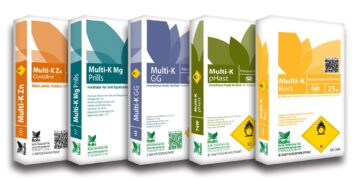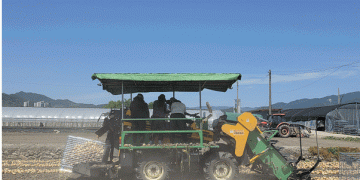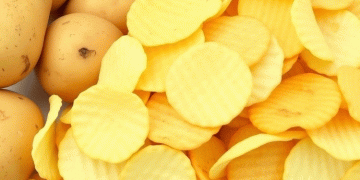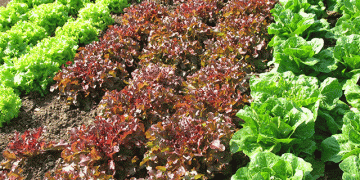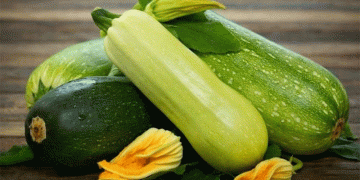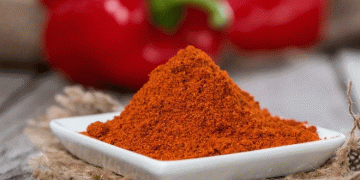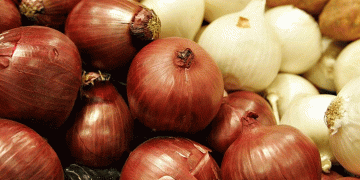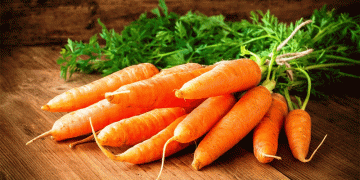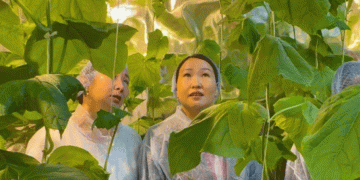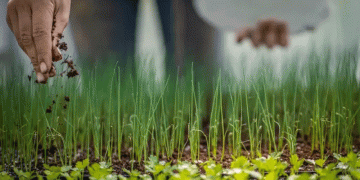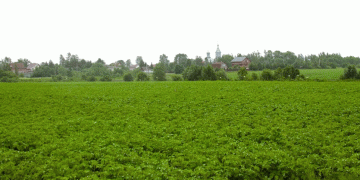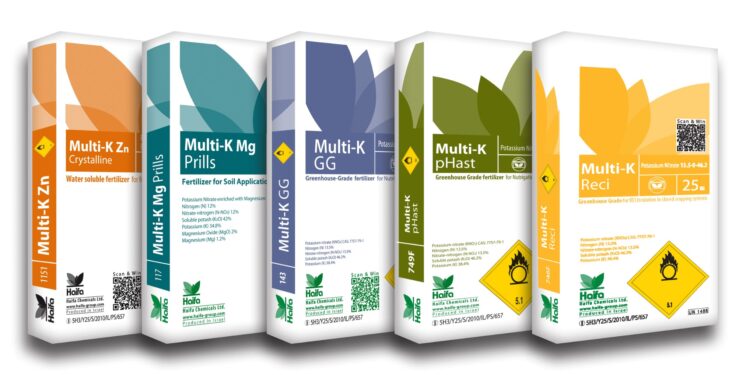The world understands one of the great challenges ahead remains the need to dramatically increase food crop production to sustain our future global populations.
In agriculture, this is not only driving the use of new methods and inputs to help grow crop yields, but also strategies to reduce elements that can limit production. In the crop nutrition industry, one of the recent focus areas has been the negative role chloride plays in crop production and, hence, the use and impact of potassium sources with high chloride content compared with using the more beneficial potassium nitrate.
Research has indicated alternative potassium sources can increase salinity by nearly 50 per cent compared with potassium nitrate, and with some sources it is close to 100pc.
Chloride is required by plants, but only in small quantities and is generally satisfied by the chloride levels that already exist in soils or that is added via fertiliser treatments, irrigation water applications or rainfall, particularly in coastal areas. Chloride levels in plant tissues have been shown to be 10 to 100 times higher than what is required for ideal growth, indicating the widespread incidence of high chloride levels in soils, which causes a range of detrimental effects. Excess chloride in soils is associated with increased soil salinity and becomes toxic to plants, damaging crop development and soil systems.
Typical plant symptoms can include stunted root and shoot growth, seedling injury, leaf burn and defoliation, resulting in reduced crop yields and quality. This can include reduced organic acids, which affects taste, and valuable storage compounds such as sugar, starch and protein, as well as increased hydration and diminished storage or processing properties. Applications of potassium chloride, which are still common in cropping systems today, continue to build chloride (or salts) in soil and the plant root zone, which then also blocks the uptake of essential nutrients like nitrate and sulphate that contribute to healthy crops and foods.
Furthermore, the addition of chloride to soils then requires intensive, extra irrigation to prevent the accumulation of salts in the root zone, countering the ongoing push to enhance our water use efficiency.
A range of crops are known for their sensitivity to chloride and salt, including almond, apricot, avocado, banana, citrus, grapes, mango and peach fruit crops, berries including strawberry, lettuce, onion and sweet pepper vegetables and potato and tobacco field crops, as well as coffee and flowers.
Some of the effects can include reduced dry matter content of potato tubers, extractable sucrose in sugar cane and combustibility in tobacco, while the latter also can become dark and smell after packing.
Using potassium chloride adds 760 grams of chlorides for every kilogram of potassium applied to soil, whereas potassium nitrate is virtually free of detrimental chloride.
Tal Shani, Soluble Fertilizers Marketing Manager with a leading supplier of potassium nitrate, Haifa Group, said a key benefit with potassium nitrate was that under excessive chloride and saline conditions, the nitrate component actually helped to reduce the harmful effect of chloride and the potassium component counteracted the damaging effects of sodium.
Haifa Group introduced potassium nitrate by combining potash and nitric acid and it continues to be at the forefront of new application developments with the fertiliser.
The company’s potassium nitrate fertiliser contains 100pc plant nutrients, ensuring no residues to contaminate soil or groundwater.
Tal said effective synergy between the nitrate and potassium enhanced uptake of the nutrients by plant roots and it also prevented adsorption of the latter to soil particles, thereby keeping it available for uptake over a longer period.
Due to its low salt index, there is also no need for extra irrigation, importantly saving water, and Haifa Group’s potassium nitrate can be safely mixed with all water-soluble fertilisers.
A range of trials in different crops and locations have consistently demonstrated the benefits of potassium nitrate compared with other potassium sources.
In one of Haifa’s own trials, where potassium nitrate was compared with potassium chloride in greenhouse-grown tomatoes on a sandy loam soil type, yield was 17.4pc higher where the potassium nitrate was applied.
In a trial in potatoes under chloride-affected, saline conditions in Peru, potassium nitrate achieved higher yields than both potassium sulphate and potassium chloride.
Selecting the right potassium source is vital for Californian almond growers, who are faced with water shortages, government-imposed restrictions to prevent nitrogen waste and increased salinity levels in both water and soil, and a multi-year trial there also clearly illustrated the benefit of potassium nitrate. Yields were up to 22pc higher where potassium nitrate was included compared with potassium chloride, potassium sulphate and potassium thiosulphate.
In addition, the highest yields in the trial also demonstrated increased nitrogen recovery (total fruit nitrogen in all fruit parts) and a 13pc increase in nitrogen use efficiency.
In wheat and soybean in Italy, applications of potassium nitrate, even in addition to a base dressing of potassium chloride, achieved yield gains ranging from 8-17pc in the wheat and 5-12pc in the soybean.
In Vietnam, applications of potassium nitrate in addition to basal dressings of potassium chloride, and also following reduced basal treatments, increased paddy rice yields by up to 16pc. Finally, in glasshouse trials in Turkey, where potassium nitrate was applied to salinity-treated melon, it was found to significantly reduce the effects of salinity on plant growth and fruit yields.
The trials are continuing to reinforce the benefits of potassium nitrate to farmers and the risks of using alternative potassium sources, which, although a lower cost investment, are detrimental to crop production, soil systems and their returns.
